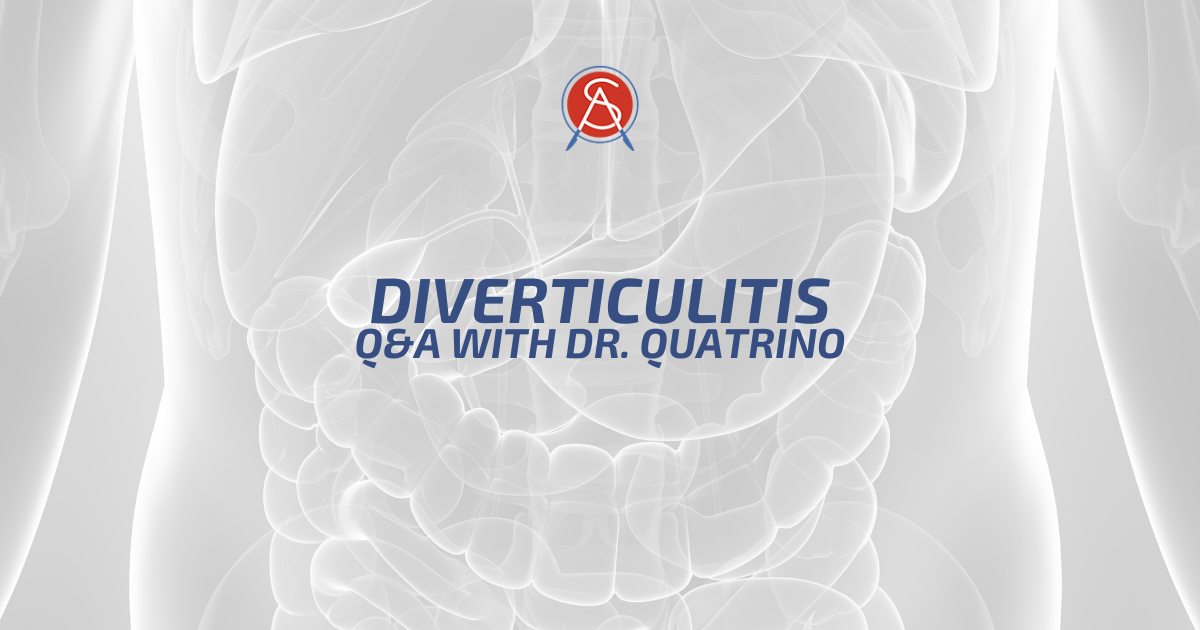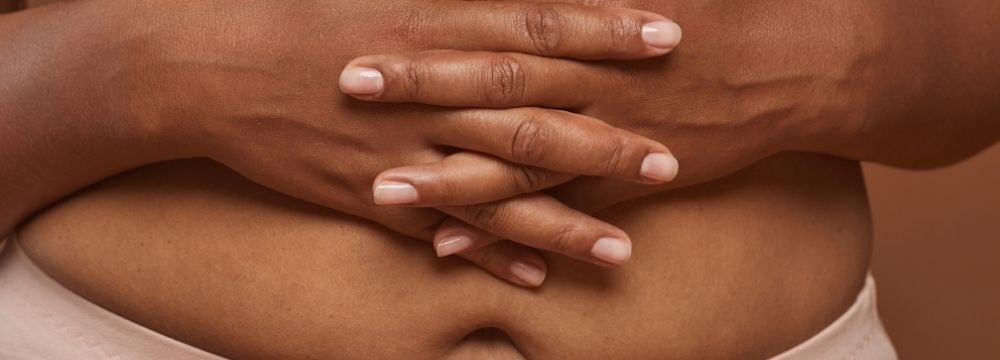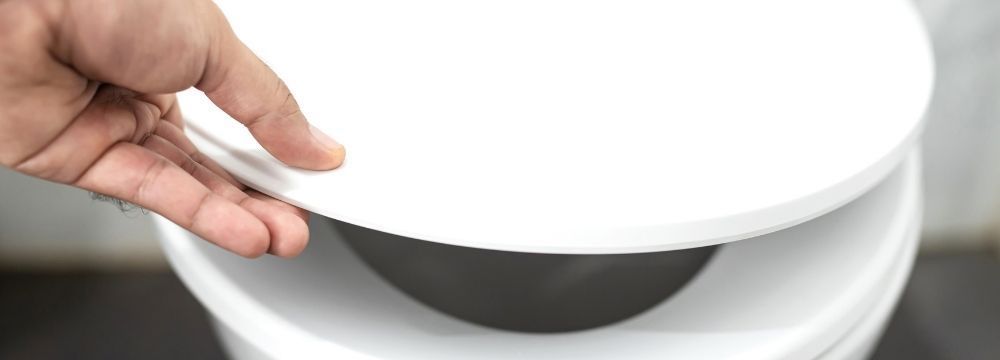
Diverticulitis occurs when small pouches, known as diverticula, that have formed in the colon, become infected. Diverticulitis symptoms can manifest as mild or even severe and should be evaluated by a specialist as soon as possible. You can learn more about diverticulitis here.
What Causes Diverticulitis?
The main risk factors of diverticular disease include aging, obesity, genetics, a low fiber diet, drugs including NSAIDs, smoking or a combination of these.
Is Diverticulitis Hereditary?
As with many diseases, there is some evidence that diverticulitis has a hereditary component. If close family members have suffered from diverticulitis or colorectal disease in general, it is best to tell your doctor, so they can screen for diverticular and other colorectal diseases.
What Does Diverticulitis Feel Like?
Most patients experience mild, moderate or even severe abdominal pain, usually in the lower left quadrant of the abdomen. The area may feel tender or painful to the touch. Fever and nausea may accompany this pain. A change in bowel habits is also common; in the form of diarrhea or constipation.
How Long Does an Attack Last?
The pain and discomfort associated with diverticulitis may last for up to a few days or more. Severe cases of diverticulitis may not resolve without treatment in the form of antibiotics or even surgery (colectomy). It is not prudent to try to wait it out – instead, unexplained abdominal disease should be evaluated by a specialist as soon as possible.
Is Diverticulitis Dangerous?
The short answer is that it can be. Untreated diverticulitis can lead to an abscess in the colon. This, as well as scarring, can cause a blockage. Fistulas can also form as a result of diverticulitis. The most severe consequence of untreated diverticulitis is the rupturing of one of the outpouchings, which allows fecal matter to enter the abdomen and cause an infection of the lining of the abdomen, known as peritonitis. This severe consequence of diverticulitis requires immediate surgery and medical care.
Can I Tell That I Have Diverticulitis from My Stool?
Diverticulitis can causes blood in the colon. Therefore, patients with abnormally dark or tarry stool may be experiencing diverticulitis or another colonic disease, such as cancer. There are many other GI conditions that can cause this as well.
Does Diverticulitis Go Away?
Typically, diverticulitis does not go away on its own. Some treatment including rest and antibiotics is sufficient for mild cases. However, severe or recurring diverticulitis may require surgery in the form of a colectomy to remove a portion of diseased colon.
How is Diverticulitis Treated?
Many patients only have mild symptoms due to their diverticular disease. This is known as uncomplicated diverticulitis. Very mild cases may simply require rest and dietary changes. Whether treatment is necessary should be determined by a colorectal specialist using specialized diagnostic tools. Complicated diverticulitis, which usually manifests as a more severe diverticulitis attack, may require antibiotics and a drainage tube to eliminate an abdominal abscess, if present. Surgery is reserved for severe and/or recurrent cases of diverticulitis that have, or are likely to cause, serious complications including a fistula, obstruction or perforation.
Can Diverticulitis Be Prevented?
There’s no sure-fire way to avoid diverticulitis, however healthy lifestyle habits can reduce the risk of diverticular disease significantly. Patients should exercise regularly, stay well hydrated to avoid constipation and promote normal colonic function, stop smoking and eat more fiber rich foods including whole grains, fresh fruits and vegetables. Patients should also reduce the amount of fatty animal products that they consume.
Next Steps
If you have or previously had the symptoms of diverticulitis, we encourage you to see a specialist as soon as possible. Please make an appointment with Dr. Quatrino to learn more about your options. For any medical emergencies, be sure to dial 911 or go to the nearest emergency room as soon as possible.









